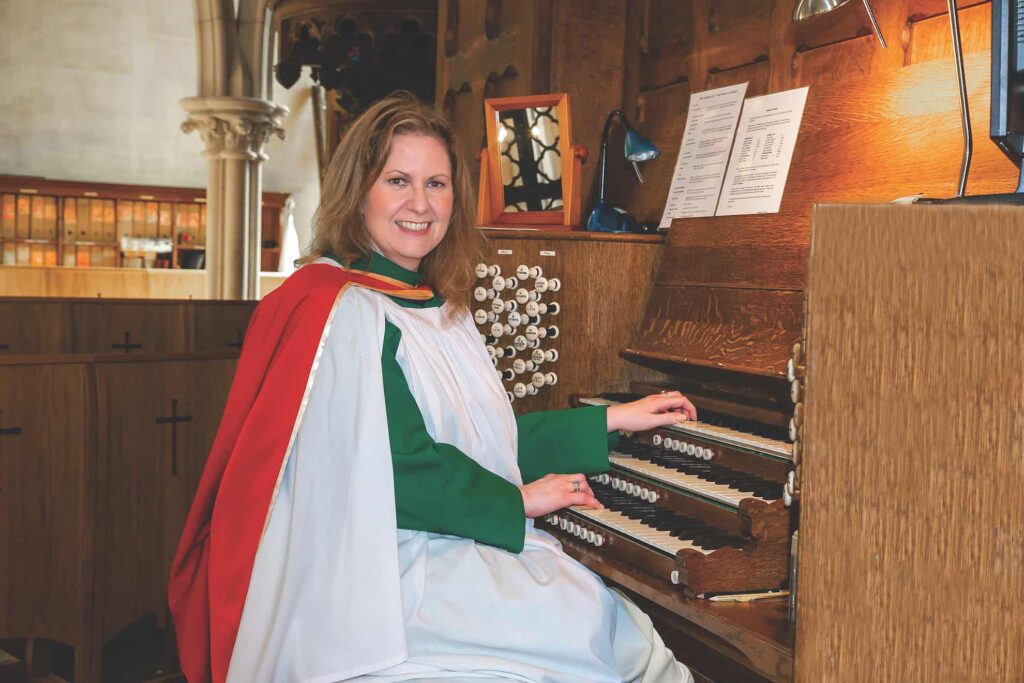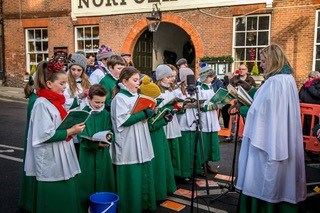Community header template
- Home
arrow_drop_down
- News
arrow_drop_down
- What’s On
- Local Information
arrow_drop_down
- Community Groups
arrow_drop_down
- Business Support
arrow_drop_down
- Advertising Rates
- Business Networks
- Akin Arundel
- Arundel Chamber of Commerce
- Consultants, Admin Support & Office Space
- Film Location & Production Support
- IT & Technical Support
- Legal, Financial Planning, Accountants And Insurance
- Local Publications And Media
- Marketing, Printing & Digital
- Business Newsletter
- Local Directory
arrow_drop_down
- Estate & Lettings Agents & Architects
- Health, Beauty & Wellbeing
- Home & Gardening Services
- Legal, Financial Planning, Accountants And Insurance
- Photographers, Fashion & Lifestyle
- Retirement, Care & Funeral Services
- Travel, Holidays & Languages
- Tradesman, Builders and Property Services
- Vehicle Repairs, Storage, Hire & Taxi Services
- Weddings, Events & Entertainment
- Contact
A Profile of Elizabeth Stratford

Published Autumn 2021, by Oliver Hawkins
HOW does a career in music begin? In the case of Elizabeth Stratford, director of the Arundel Cathedral Choir, it meant struggling with a euphonium almost as big as herself on the bus to school in Bradford each day, aged ten. She didn’t even want to play the euphonium, but the school had no flutes, her chosen instrument, and she realised that the compromise was worth it. She enjoyed music, singing in her parish church choir, realising over time that she was able to hit higher notes than the adults she sang with, but not thinking of music as a career goal. Then in due course a flute became available at school, and as Elizabeth’s playing improved her mother realised that she needed a better quality instrument. Despite money being short she took out a substantial bank loan to buy one, a significant step in what has clearly been an enormously supportive relationship between mother and daughter throughout Elizabeth’s career.
With this kind of encouragement at home it was not surprising that when the Catholic Diocese of Leeds offered auditions for a Girls’ Choral Weekend workshop on music in the city, Elizabeth applied. Getting through a tough audition process, working with inspirational teachers, and performing in Leeds Cathedral provided what she describes as the transformative moment, and her career path was set. Having done well in academic subjects at her Catholic Girls Grammar School, Elizabeth applied to Cambridge and was offered a place to read music singing at Trinity College. But the college asked her to defer her place for a year, and Elizabeth was concerned at the lack of opportunity on the course to play the organ. So, to the bitter disappointment of her teachers, Elizabeth chose to start her degree course without delay at the University of Huddersfield. Here she was able to conduct a local choir at the same time as studying, confirming her determination to work in the field of church music, and providing her with invaluable practical experience.
Following her first degree (and an organist job in another parish church) Elizabeth moved to the University of Leeds to do a Masters Degree in Liturgical Music. Undeterred by consistent discouragement as to her hopes for a career in a field that was then almost exclusively male – ‘You’re a woman not an organist. Go and become an English teacher’ – Elizabeth persevered, progressing with her studies at the Royal Northern College of Music in Manchester, and supporting herself with whatever jobs she could find. When she saw the post advertised for an Organist and Director of Music at Arundel Cathedral she knew that as a woman just out of higher education her chances were not great, but she arranged to stay with a friend in London and arrived in Arundel for the interviews and auditions. Back in London next morning her mother rang to say the Cathedral Dean had telephoned. Elizabeth assumed she must have left something behind after her interview, but no, it was an offer of the job. Almost twenty years on she has no regrets, but at the time it was a daunting prospect: Arundel Cathedral serves on the one hand as the parish church for a small local population, and on the other as the centre for the major diocesan services and events that define the liturgical year. So Elizabeth needed her mother’s encouragement – ‘God never sends you anywhere without your bus fare home’- that sent her on her way.
Elizabeth had to find additional employment to pay the bills, and found teaching positions at Westbourne House School and later Brighton College
In Arundel Elizabeth set about building up the choir, with some stalwart senior members but an increasing focus on young choristers. In due course she introduced the idea of choral scholars, young adults involved in higher education who are helped financially and able to gain credits for their degrees at the University of Chichester through their practical involvement in the choir. In addition to her work at the Cathedral, officially only part-time, Elizabeth had to find additional employment to pay the bills, and found teaching positions at Westbourne House School and later Brighton College, as well as providing lessons for individuals.
Pursuing her own academic development Elizabeth undertook doctoral studies in sacred music, examining the link between the vernacular and music in sacred composition. As with her turning down a place at Cambridge because it did not include access to the chapel organ, it is clear that her priority is for music to be conducted, played, sung and listened to, rather than simply to be analysed. At the same time the list of fellowships and qualifications she can claim is formidable: fellowships and diplomas ranging from the Guild of Church Musicians, the Academy of St Cecilia, the Faculty of Church Music and the Irish Guild of Organists and Choristers, to the numerous examination boards of the British Royal Schools of Music, the Victoria College of Music, and the National College of Music. She could legitimately wear a different academic hood and gown for every day of the week, but in fact her current favourite is her doctoral hood when she leads out the choir each Sunday.
At present there are twenty young choristers, eight Choral Scholars from the University of Chichester, and a handful of long-serving and much appreciated older members of the choir. The past eighteen months have not been easy. Among all those frustrated by lockdown restrictions, choral singers have felt particularly aggrieved, with the feeling that ‘amateur’ singing has proved a soft target for a government prioritising pubs and football matches. A recent favourite on Twitter shows a chorister singing into a candle flame, with no apparent effect. He then says ‘Two pints and a packet of crisps’ and the candle blows out! For Elizabeth the frustration has not only been the restrictions on practice and performance, but the challenge of keeping her young choristers inspired and engaged. With things beginning to ease a little Elizabeth has been doubly active, bringing the choir back into action and recording a new CD, the choir’s first in eight years, featuring music for Maundy Thursday, Good Friday and Eastertide. Sessions were recorded during May in Arundel Cathedral, and early feedback from the producers is good. It is hoped to have a launch in the autumn, with a short concert featuring music from the disc.

Each year Elizabeth expects to lose one or two singers- the choral scholars finish their degrees, young choristers move on to schools or universities elsewhere. It says much about the spirit of the choir that many leavers will make a point of calling in when back in the vicinity, and taking their places again to sing. This year she says goodbye to four choral scholars (one moving to a greater parish church as organ scholar having finished his degree, another going on to train as a teacher) and two choristers (one to read aeronautical engineering at university and the other to Roedean School with music, sport and Headmaster’s awards). This is a larger turnover than usual, but others will join, and the choir will continue to provide an essential element in the life of the Cathedral, and a formative experience in the lives of its choristers.
Joining the Cathedral Choir
Being a Cathedral chorister is clearly a great experience for a child. It’s not necessary for the child to be able to read music or to be a Roman Catholic to sing with the choir. Good reading ability is expected, willingness to learn, energy, enthusiasm and the right attitude towards working with others whilst respecting an environment in which all work to the glory of God. An audition is designed to assess potential rather than current ability, and is not expected to be a polished performance. During his or her time in the choir, a chorister will sing a range of music spanning hundreds of years, receiving a first class musical education free of charge. Choristers sing services each week (Mass and Compline) in the stunning acoustic of the Cathedral and also take part in broadcasts, recordings, tours and trips. The experience of being a chorister is lots of fun and extremely fulfilling; choristers learn skills which are invaluable, make friends for life and generally improve academically as a result of their chorister training.
Elizabeth is always happy to see prospective candidates and an informal meeting can be arranged at any time. Enquiries about places for voluntary adults and choral scholarships are also welcome.
To find out more please contact Elizabeth Stratford on 07971 090724 or email arundelcathedralmusic@gmail.com
